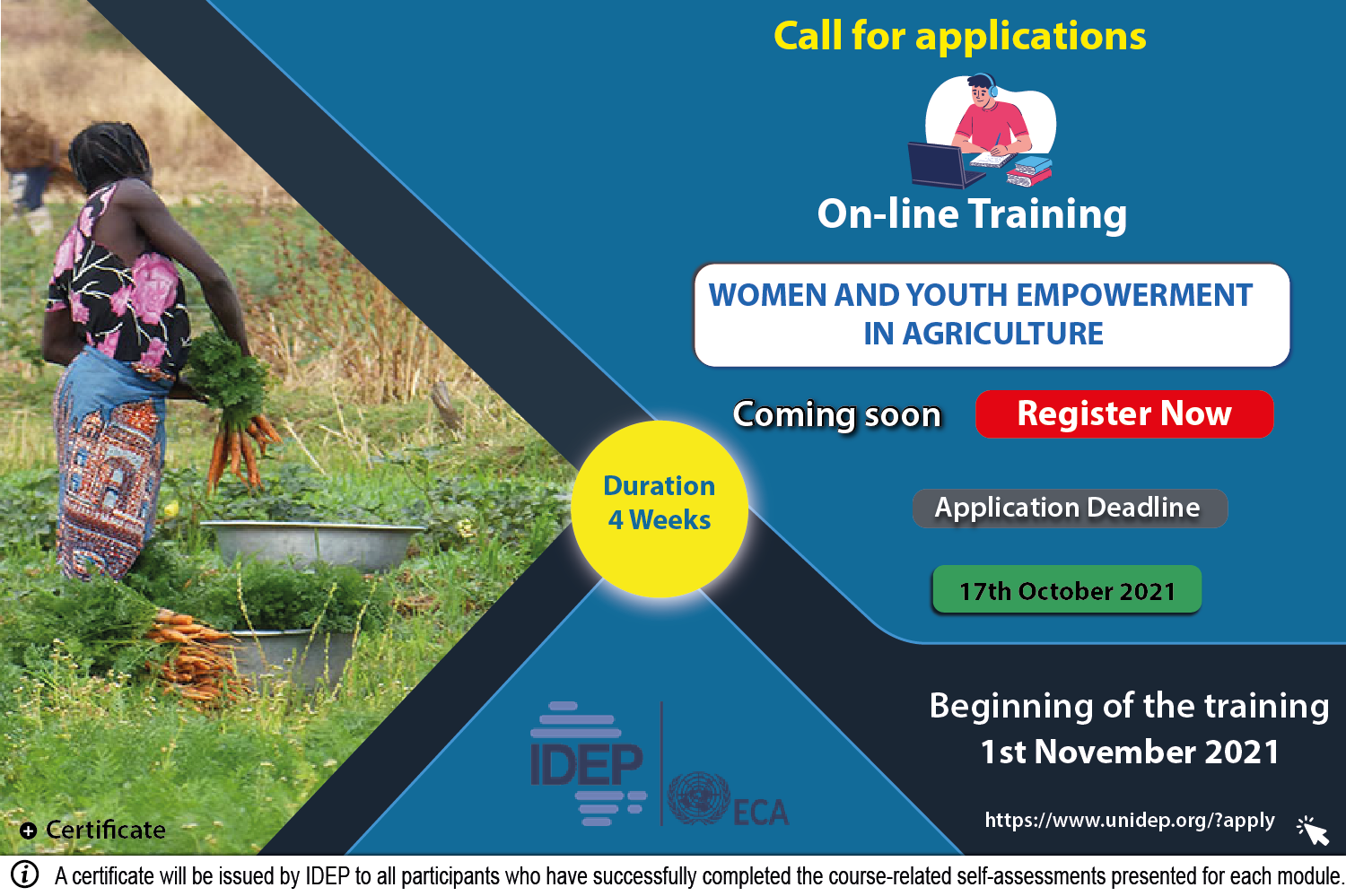Women and Youth Empowerment in Agriculture
PROGRAM RATIONALE
According to ILO estimates, the number of unemployed people in Africa has been increasing over the years, from 25 million in 2010, it reached nearly 34 million in 2019. Of these, roughly 12 million were young people aged between 15-24 years. The youths represent over a third of the total working age population in Africa (34%) as compared to 23.6% at the global level. In addition, the youth labor force is still growing over the continent while the trend is steady in most regions of the world. This situation could entail a heavy pressure on the job market which might not be able to absorb all the new entrants. In terms of unemployment, Africa has recorded a rate of 6.8% in 2019 above the world average of 5%. It is worth mentioning the high level of informal employment in the total employment (nearly 86% in 2019). Regarding gender considerations the female unemployment rate has been systematically greater than the male unemployment rate since 2010. In 2019, it was 7.5% as compared to 6.3% for men. Women are also relatively more represented in the informal sector than men. They are likely to suffer
from indecent and low paid work.
The agricultural sector is the main source of employment across the continent. It employs more than half of the working population (54%) in 2019. However, the agricultural activities are correlated with informal employment, and employ several women who hold fewer land property rights than male farmers. Many experts reported that a better access to land tenure could enhance access to credit and thus, develop businesses including agribusiness. Therefore, there is need to empower the workers of this sector to enhance their productivity and the overall competitiveness of this branch. The utilization of innovative solutions offered by digital agriculture could also be an option to further develop the agribusiness value chains.
LEARNING OBJECTIVES
This training programme aims at strengthening the capacity of officials involved in the agricultural sector as well as all interested candidates on the need and how to empower youth and women in this sector for a better productivity of employment and poverty alleviation.
Specifically, the course objectives are:
- To introduce course participants on the roles of agriculture in rural and economic development for the empowerment of women and youths.
- To provide course participants with knowledge on Women and Youth as concepts for community and agricultural development
- To provide course participants a thorough understanding of the problems and policies for agricultural development with options for empowering Women and Youth
- To expose course participants on the opportunities for job creation and employment of Women and Youth in agriculture
- To provide course participants with knowledge on the strategies for modernizing agriculture to empower women and youth
